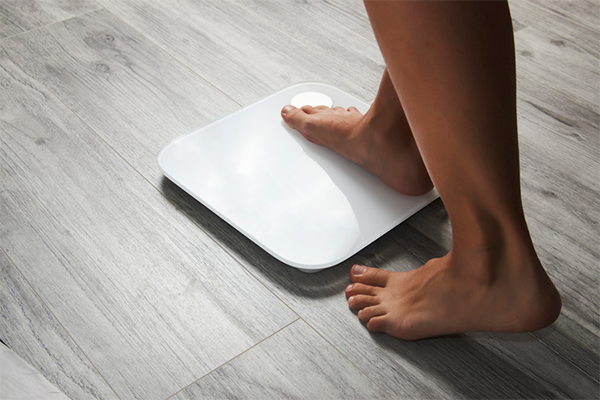When you’re working out to shed pounds, it’s easy to become fixated on the number on the scale.
However, this number is not a reliable indicator of progress as it only reflects total weight and not the composition of that weight (i.e. the ratio of lean muscle to fat).
An excessive focus on the scale can lead to extreme calorie restriction and ultimately, muscle loss.
With the abundance of trendy diets and quick-fix fitness plans circulating on social media, many individuals end up losing both fat and muscle when they lose weight — but it doesn't have to be this way.
Here are some signs that indicate you may be losing muscle along with fat, signaling a need to reconsider your weight loss approach in favor of one that is more muscle-friendly and sustainable.
1. Your Gym Performance Plateaus (Or Declines)

If your workouts feel more challenging than usual and you find yourself unable to lift your usual weights consistently, it could be a sign of muscle loss, according to Marley Oldham Carnes, M.S, R.D., C.S.C.S., CF-L1.
Oldham Carnes advises, "If you want to lose weight while maintaining muscle, start keeping a training log to ensure you are not losing strength."
2. You're Losing More Than a Couple of Pounds Per Week

According to Oldham Carnes, the average person can sustainably lose between one and two pounds per week.
If you are losing more than this amount, you may be losing muscle and water weight along with fat.
Additionally, if you are following a diet or program that promises faster weight loss, it is recommended to steer clear, as cautioned by Oldham Carnes.
3. You Feel Fatigued Throughout the Day

When you experience muscle loss, it not only impacts your workouts but can also result in overall fatigue and lack of motivation, according to Oldham Carnes.
The crash dieting, excessive cardio, stress, and inadequate protein intake that contribute to muscle loss can also lead to mood and energy issues.
How to Determine If You're Losing Muscle Mass
To accurately assess whether you are losing muscle, measuring your body composition is key.
While methods like DEXA scans and underwater weighing provide precise measurements, your local gym, university, or doctor's office may offer a body composition scale for a general idea of your progress.
How to Preserve Muscle While Losing Fat

To lose weight while preserving muscle mass, a suitable exercise plan that includes strength training, a balanced diet with sufficient protein, and a moderate calorie deficit is essential, explains Oldham Carnes.
1. Consume Adequate Protein
Ensuring you consume enough protein is crucial to prevent muscle breakdown. Personal trainer Lisa Reed, M.S., C.S.C.S., USAW, recommends consuming 20 to 30 grams of protein at each meal and incorporating small snacks to keep hunger at bay and provide your muscles with the nutrients they need to thrive.
Most individuals should aim for around 0.8 grams of protein per kilogram of body weight, with this amount increasing for regular exercisers.
2. Incorporate Strength Training
Challenging your muscles through strength training is essential for muscle growth. Aim for at least two to three strength training sessions per week, as recommended by the American College of Sports Medicine.
3. Track Meals and Workouts
To ensure you maintain a calorie deficit of 500 calories or less, it is advised to track your food intake and physical activity, as recommended by Oldham Carnes. This approach will help you achieve results without compromising muscle mass.
